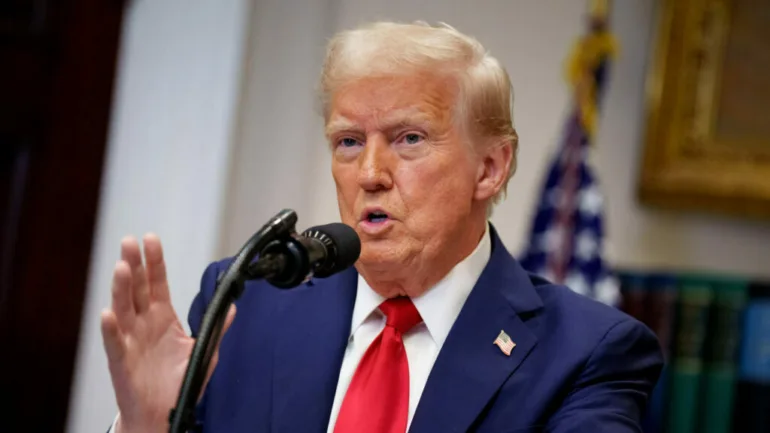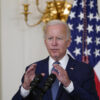A divided U.S. Supreme Court on Tuesday allowed former President Donald Trump’s ban on transgender military service to take effect while legal challenges continue, putting thousands of troops at risk of dismissal.
The court’s decision, opposed by its three liberal justices, marks a significant victory for Trump, who has prioritized rolling back transgender rights in his second term. The ruling clears the way for the Pentagon to implement policies that could lead to the removal of service members diagnosed with or showing symptoms of gender dysphoria.
LGBTQ+ advocacy groups, including Lambda Legal and the Human Rights Campaign Foundation — plaintiffs in a case that had previously blocked the ban — condemned the court’s move as “a devastating blow.”
“Transgender individuals meet the same standards and demonstrate the same values as all who serve,” the groups said in a joint statement. “We remain steadfast in our belief that this ban violates constitutional guarantees of equal protection and will ultimately be struck down.”
White House Press Secretary Karoline Leavitt celebrated the ruling on X (formerly Twitter), calling it “another MASSIVE victory” for Trump and Defense Secretary Pete Hegseth. She said the administration is “restoring a military focused on readiness and lethality — not DEI or woke gender ideology.” Hegseth echoed the sentiment with a blunt post: “No More Trans @ DoD.”
In a January 27 executive order, Trump claimed that expressing a gender identity different from one’s sex at birth is incompatible with the demands of military service. A Pentagon memo issued in February outlined plans to remove transgender troops unless granted a waiver and to block new transgender recruits from joining.
The policy applies to those diagnosed with gender dysphoria — a condition affecting an estimated 4,240 currently serving troops, according to a senior defense official — as well as those with a history of the diagnosis.
The decision marks another dramatic shift in U.S. military policy on transgender service. The ban was originally lifted in 2016 under President Barack Obama. Under Trump’s first term, the policy was first delayed, then reversed entirely, taking effect in April 2019 after extensive legal battles.
President Joe Biden reversed Trump’s ban shortly after taking office in 2021, but Trump’s 2024 reelection has seen a renewed effort to reinstate restrictions on transgender rights across the board.
Transgender issues remain a flashpoint in U.S. politics, with red and blue states taking increasingly divergent stances on everything from healthcare access to library books.
AFP


